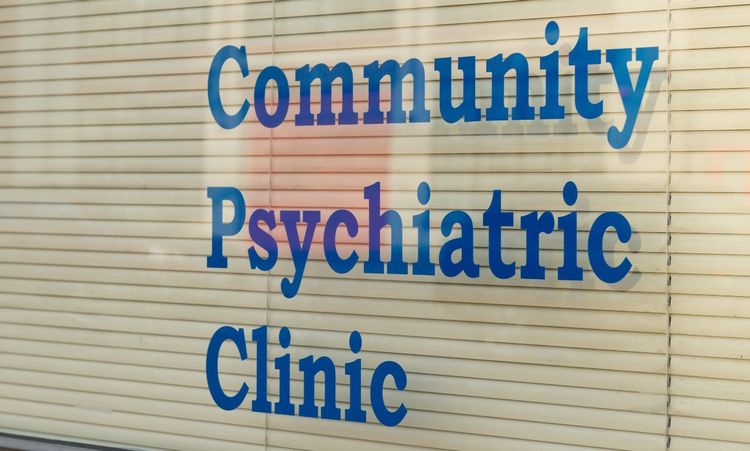Motherhood changes everything. From sleepless nights to baby giggles, every moment shapes a woman in ways she never expected. Among those changes, breastfeeding stands out. It creates comfort, trust, and connection — a quiet rhythm between mother and child.
When that chapter ends, though, emotions often stir beneath the surface. For some women, it’s a relief. For others, it’s like losing a part of themselves.
Weaning doesn’t just affect milk supply. It can touch the heart, body, and mind in complex ways. Some mothers feel a gentle sadness. Others feel like a fog has settled in.
The question is worth asking — Are women more vulnerable to depression after weaning? Let’s explore what really happens when breastfeeding stops and how to handle those emotional waves.
Symptoms of Depression When Weaning
Depression after weaning rarely arrives with a clear warning. It creeps in quietly, blending with daily exhaustion or baby blues.
You may notice that joy feels dimmer. Things that once excited you now seem distant. Some days, tears come for no reason at all.
Sleep can become unpredictable. You might stay awake thinking, even when you’re bone-tired. Appetite may change too — some eat less, others find comfort in food.
A sense of guilt often joins in. You might question your decision to wean or fear you’ve lost your connection with your child.
There’s also irritability. Small frustrations feel bigger than they should. The mind feels restless, and emotions swing without warning.
Recognizing these signs matters. They don’t mean you’re failing; they mean your body and heart are adjusting.
What Causes Post-Weaning Depression?
Hormonal Changes
Hormones run the show more than we realize. When breastfeeding stops, estrogen and prolactin drop suddenly. These hormones influence mood, energy, and even motivation.
Estrogen helps regulate serotonin, the chemical responsible for feeling calm and stable. When estrogen dips, serotonin does too. That’s why you may feel unusually emotional after weaning.
The shift can mimic the baby blues many women feel after birth. It’s not in your imagination — your body is genuinely recalibrating.
This process can leave you feeling fragile, anxious, or down. It’s biology, not weakness.
The hormonal roller coaster can also affect sleep cycles, appetite, and concentration. Over time, things usually balance out, but those first few weeks can feel overwhelming.
When this imbalance mixes with emotional strain, post-weaning depression can surface more intensely.
Emotional Adjustment
Hormones are just one piece of the puzzle. The other part is deeply emotional.
Breastfeeding isn’t just nourishment — it’s comfort, closeness, and routine. When it ends, something shifts inside. Many mothers describe it as a quiet loss, a change that feels both natural and painful.
You may miss those quiet nursing sessions when the world felt still. That absence can bring unexpected sadness.
Some women feel uncertain about their role once breastfeeding ends. The baby begins to explore independence, and the mother has to adapt. It’s beautiful yet bittersweet.
There’s also societal pressure. Mothers often hear about the benefits of breastfeeding but rarely hear that weaning can hurt emotionally. Few talk about the grief that sometimes follows.
Add exhaustion, family stress, or work pressure, and emotions can easily spiral. It’s not just hormones; it’s a full emotional shift.
Acknowledging that change helps make sense of what’s happening inside you.
How Does Diagnosis Work?
Doctors don’t diagnose post-weaning depression with a single test. It’s about listening and observing.
A healthcare professional usually asks about mood changes, sleep, appetite, and energy levels. They may compare symptoms with your medical or mental health history.
If sadness, irritability, or loss of interest lasts beyond two weeks, it’s worth seeking help. Many women hesitate because they think it’s “just hormones,” but emotional health deserves attention.
Early recognition makes treatment smoother and recovery faster.
Diagnosing Post-Weaning Depression vs. Postpartum Depression
Postpartum depression and post-weaning depression can look alike, but their timing and triggers differ.
Postpartum depression appears soon after childbirth. It’s linked to the body’s massive hormonal drop right after delivery.
Post-weaning depression, however, happens later. It begins when breastfeeding ends, often months or even years after birth.
The emotional triggers also differ. Postpartum depression relates to new motherhood stress, while post-weaning depression stems from separation and hormonal decline after nursing.
Both deserve care and understanding. Neither is your fault. Recognizing the difference helps ensure you get the right support.
Professionals might suggest therapy, lifestyle changes, or medication depending on severity. What matters most is acknowledging what you feel and not brushing it off.
Online Therapy for Depression
Modern motherhood looks different from the past. Technology now bridges gaps that once made getting help difficult.
Online therapy has become a lifeline for many mothers. You can talk to licensed therapists from your couch, even while your baby naps.
No long commutes or waiting rooms. Just your phone, your time, and someone who listens without judgment.
Therapists help identify emotional triggers, build coping tools, and teach relaxation techniques. They also guide you in separating hormonal sadness from deeper depression.
Some women find it easier to open up online. There’s a sense of privacy and control that helps them speak freely.
Whether through video sessions or text-based chats, online therapy provides flexibility when life feels crowded. And for new mothers, that convenience means everything.
How Long Do Post-Weaning Symptoms Last?
There’s no single answer. Every mother’s experience is different.
For some, the emotional dip lasts a few weeks. For others, it stretches over several months.
Hormonal balance usually returns within six to twelve weeks. But emotions don’t follow strict timelines. Healing can take longer, especially if stress or fatigue lingers.
Past history of depression can also extend recovery. The mind remembers old emotional patterns, and big hormonal changes can reawaken them.
It’s important to be patient. Emotional recovery isn’t linear. One day you might feel fine, and the next, tears might surprise you. That’s normal.
If sadness or anxiety persists beyond two months, or daily life feels heavy, seek help. Therapy, rest, and support can shorten recovery and bring relief faster.
You’re not meant to carry this alone.
Ways to Cope with Depression After You Stop Breastfeeding
There’s no perfect formula for coping, but small steps matter more than grand plans.
Start by acknowledging your emotions. You’re allowed to feel sad, lost, or even confused. Let those feelings breathe instead of burying them.
Talk to someone you trust — a friend, partner, or counselor. Speaking the words out loud lifts a little of the weight.
Rest whenever you can. Sleep deprivation magnifies sadness and irritability. Even short naps help your body reset.
Eat balanced meals. Foods rich in omega-3s, vitamin D, and magnesium support brain health and mood. A good meal won’t fix everything, but it helps stabilize energy.
Movement helps too. You don’t need a gym membership. A walk outside or a short stretch can release tension and raise endorphins.
Find comfort in small rituals — a warm bath, quiet tea time, or journaling. Gentle routines rebuild emotional balance.
Support groups, whether local or online, remind you that others understand. Listening to real stories from other mothers brings comfort and perspective.
Therapy remains one of the most effective tools. Cognitive-behavioral therapy (CBT) can help challenge negative thoughts and restore confidence.
Medication may be recommended in some cases. That’s okay. Seeking medical help doesn’t make you weak; it means you care about your well-being.
And finally, remember this: your bond with your child doesn’t end with weaning. It simply changes form. You’re still the source of comfort, laughter, and love — no less than before.
Conclusion
So, are women more vulnerable to depression after weaning? Yes, many are. But vulnerability isn’t failure — it’s part of being human.
Weaning is a milestone filled with pride, relief, and sometimes unexpected sadness. The body changes, hormones shift, and the heart follows its own rhythm.
Recognizing these emotional transitions doesn’t make you fragile. It makes you aware.
With understanding and support, recovery happens. With patience, the fog lifts. You rediscover joy in new routines, laughter in different moments, and strength you didn’t know you had.
No mother should feel ashamed for needing help. You’ve given so much of yourself; it’s time to refill that cup.
If you’re struggling right now, talk to someone. Reach out. Healing begins with one honest conversation.
Motherhood is a journey with many seasons — and this, too, is just one of them.




